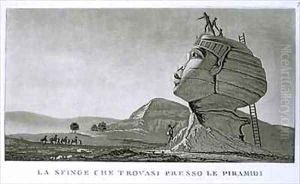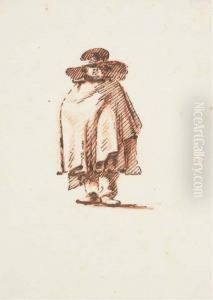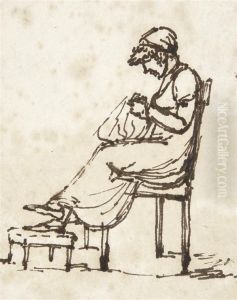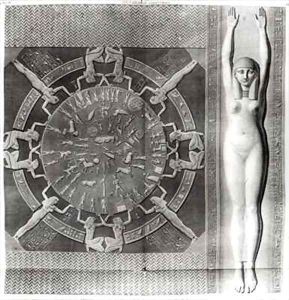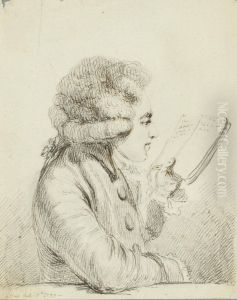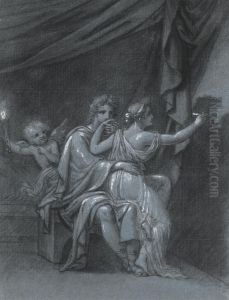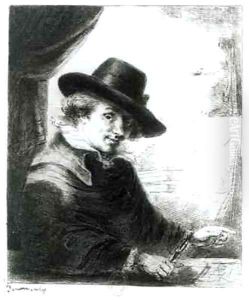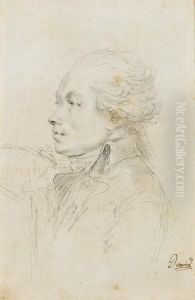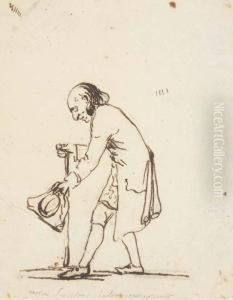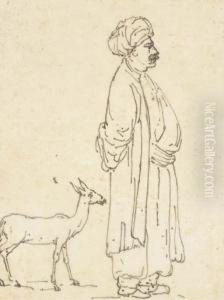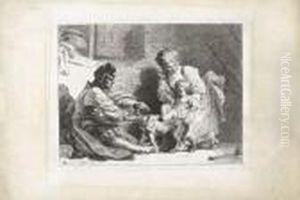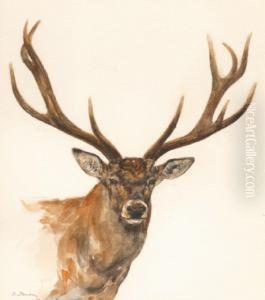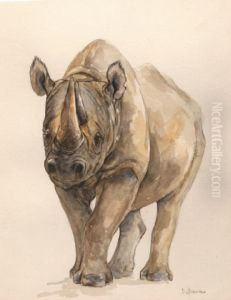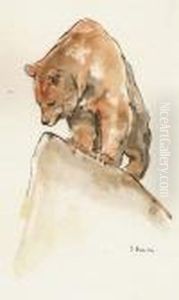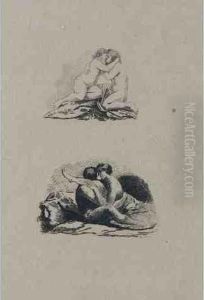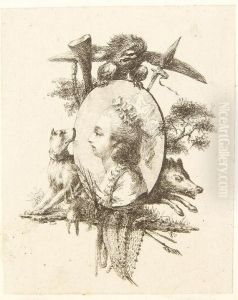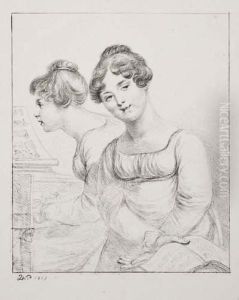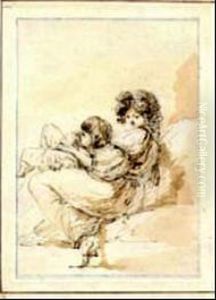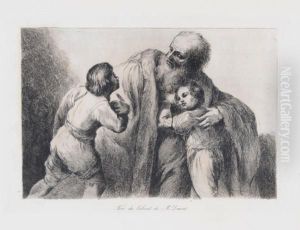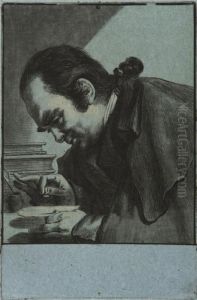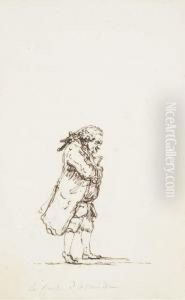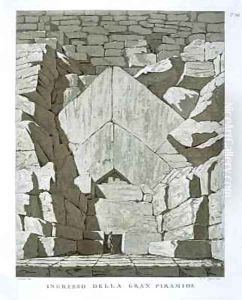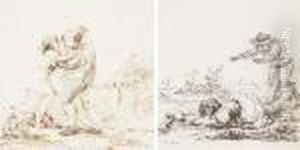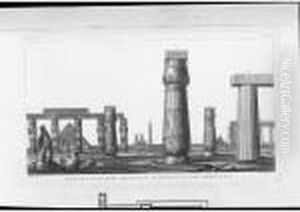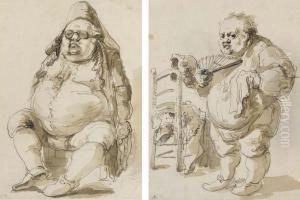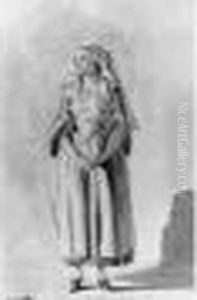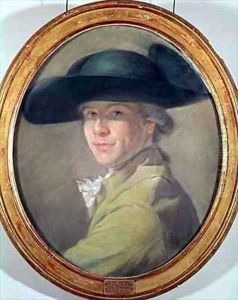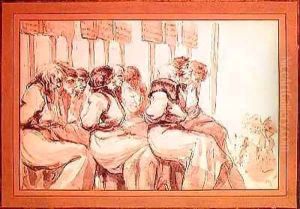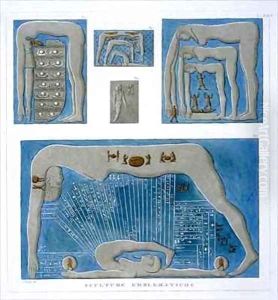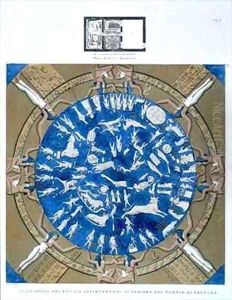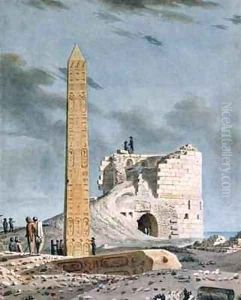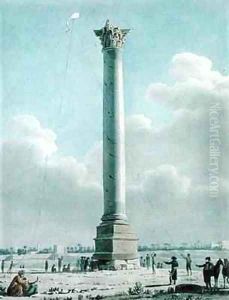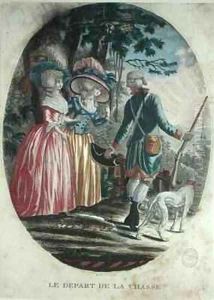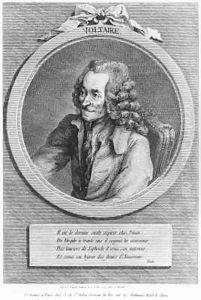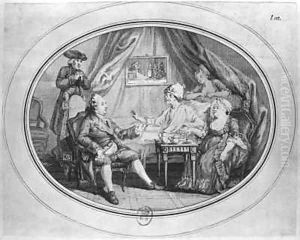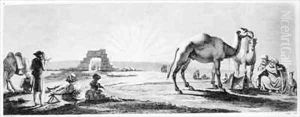Dominique Vivant Denon Paintings
Dominique Vivant, Baron Denon, better known as Vivant Denon, was a French artist, writer, diplomat, and archaeologist who played a crucial role in the founding of the Musee du Louvre and was a central figure in the arts during the French Revolution and the Napoleonic era. Born on January 4, 1747, in Givry, Burgundy, France, Denon initially studied law but quickly turned his focus to the arts and literature. He traveled extensively throughout Europe, cultivating a network of influential contacts and gaining a reputation as an engraver and artist.
Denon's career as a diplomat began under King Louis XV, and he served in various embassies including those in Russia and Sweden. However, his artistic talents were recognized by the likes of Voltaire and others, propelling him to greater heights. Denon's travels took him to Italy, where he spent time studying the great works of art and antiquity. It was during this period that he developed a passion for archaeology and the preservation of historical artifacts.
With the onset of the French Revolution, Denon's life and career underwent significant changes. He navigated the tumultuous political landscape with adaptability, which allowed him to retain prominence despite the regime changes. Under Napoleon Bonaparte, Denon was appointed as the Director-General of Museums, a position through which he played an instrumental role in the establishment of the Louvre Museum. He was responsible for the organization and expansion of France's art collections, including the integration of works seized during Napoleon's military campaigns.
Denon also accompanied Napoleon on the Egyptian campaign of 1798-1799 as part of the Commission of Sciences and Arts. He meticulously documented the expedition's archaeological discoveries, which culminated in the publication of his seminal work 'Voyage dans la basse et la haute Égypte' (Travels in Lower and Upper Egypt) in 1802. This work was influential in sparking widespread European interest in Egyptology.
After Napoleon's fall, Denon continued to be involved in the arts but his influence waned. Nevertheless, his contributions to the fields of art history, museum curation, and archaeology remained impactful. Denon passed away on April 27, 1825, in Paris, leaving behind a legacy as a man who bridged the gap between art and statecraft, and who laid the groundwork for modern museum practices. His collection of artworks and personal papers provide valuable insights into the cultural and political life of his era.
